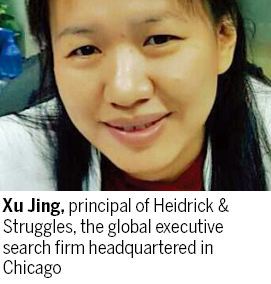Human resources managers face colossal task
(China Daily) Updated: 2013-01-18 14:14For large companies, such as State-owned enterprises, the key is for the leaders to learn from past experience, Xu said.
"Chinese companies have made too many overseas M&A deals in recent years that are yet to realize their intended value," she added.
|
 |
Part of the value is lost when the Chinese company fails, due to confusing internal policies, to retain and integrate the human resources in the targeted foreign company. The deal is less valuable once the human resources are lost, and along with them the company's capability to serve the external market.
Outstanding example
Fortunately, there are also a few exceptions, which developed out of the corporate leaders' persistent efforts to learn from the market and self-reflection abilities.
One example is the BlueStar Group, part of China National Chemical Corp, or ChemChina, Xu said. The company has done so many overseas takeovers that it has developed an operational team familiar with the due processes and able to work where the business is about to expand.
"From the way the company's top leaders talk, you cannot see any difference between their understanding of the world and those of their counterparts from large Western companies," Xu noted.
Another example, by contrast, is the learning experience gathered from the long-time mixing of Chinese and foreign executives in one office, as seen in Lenovo Group Ltd, the Chinese computer maker that took over IBM's personal computer operations in 2004.
Through a painful transition, which also straddled the world's worst financial crisis in post-war history, the company has also managed to develop an operational team capable of competing in an international environment.
"From these cases, what we can see is that although China is a latecomer to the game of building global companies, the learning potential of Chinese managers is generally by no means poor," Xu said.
From time to time, the biggest problems are with the bosses, Xu pointed out. There are corporate leaders who are not quite aware of what kind of teamwork they really need, especially strong-minded bosses of private companies.
They don't realize what kind of people make a mutually supportive and enabling team until they go through a trial-and-error process.
"This is an area where successes are exceptional. Failures are common. And many companies show the tendency to underestimate the difficulties," she said.
Incompatible cultures do not create synergies. A self-made entrepreneur with lots of hands-on experience does not need someone good at all-round leadership, but someone more focused and resourceful in implementation, Xu said.
For private companies, it is important for entrepreneurs and the top managers they employ to define their roles clearly. "And so much the better if the top manager has the skills to manage the entrepreneur," Xu said.
The Alibaba Group, a private company and China's largest e-commerce operator, was cited as an example of the synergy from a visionary founder and an effective manager of everyday operations.
With their different backgrounds and skill sets, members of an executive team have to work with one another in a productive way to achieve the best performance. This is the key, Xu stressed, to a company trying to manage its inevitable transition from being local and not so large, to being very large and competitive globally.
So long as corporate leaders have a clear understanding of what skill sets they need, they can start hunting for them globally.
"And that way they can find much larger supplies - from many international companies and also some Chinese companies," she said.
In the meantime, there are plenty of education resources that can be tapped. There are Chinese companies that send, on an annual basis, young hopefuls to quality management schools around the world.
Domestic universities, including their business education sections, are improving and getting better places in international rankings.
The demand for high-caliber managers may be huge. But after more than two decades of intense reform and development, the country has been building up its talent pool.
"China is not starting from scratch after all," Xu said.
Contact the writer at edzhang@chinadaily.com.cn
- China to invest $450b modernizing agriculture by 2020
- SOEs turn to SUVs for growth
- Amazing animal-shaped buildings in the world
- Carmakers quit Paris Motor Show to go online
- 'Koseidon,' 'Skull Island' in Tecent's super film projects
- South Korea uses China's mobile payment apps
- Shenzhen seizes 400 iPhone 7 smuggled from Hong Kong in one day
- China issues plan for Beijing tech innovation hub

















